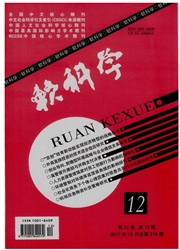

 中文摘要:
中文摘要:
以一个零部件供应商和一个成品制造商组成的两层供应链系统为研究对象,通过引入参与决策主体的竞争性公平关切行为倾向,分析了在考虑决策者公平关切偏好时供应链最优的产品质量与市场零售定价策略。在供应链参与双方均具有公平关切偏好的框架下,分别就Nash博弈、供应商Stackelberg、制造商Stackelberg和纵向一体化四种博弈结构建立了产品质量水平和零售定价的博弈决策模型,讨论了公平关切和供应链博弈结构对产品质量与零售定价优化决策的影响;并结合数值算例探讨了决策者的公平关切程度对其运作效用和利润的影响。
 英文摘要:
英文摘要:
This paper incorporates participants' competitive fairness concerns into the quality and pricing decision model for a two-tier supply chain composed of a component supplier and a finished-product manufacturer, and discusses the optimal quality level and pricing strategies under different supply chain game structures. In the framework of fairness concerns, four game models of the component's quality level and the finished-product's pricing decisions are established from Nash game, Supplier-Stackelberg, Manufacturer- Stackelberg and Vertical integration respectively. Then, the effects of the participants' fairness concerns and the different game structures on the optimal decisions are also analyzed. Finally, the impacts of the fairness concerns degree on the utilities and profits of the supplier, the manufacturer and the whole supply chain are explored by some numerical examples.
 同期刊论文项目
同期刊论文项目
 同项目期刊论文
同项目期刊论文
 期刊信息
期刊信息
